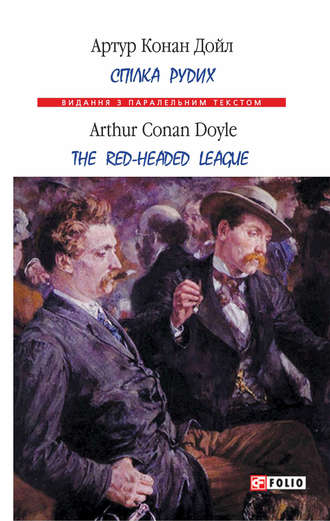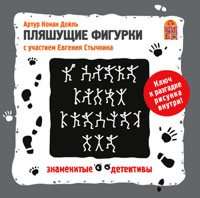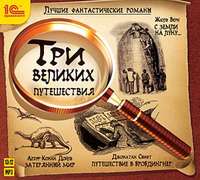
Полная версия
Спілка рудих = Тhe Red-Headed League
I may have remarked before that Holmes had, when he liked, a peculiarly ingratiating way with women, and that he very readily established terms of confidence with them. In half the time which he had named he had captured the housekeeper’s goodwill, and was chatting with her as if he had known her for years.
“Yes, Mr. Holmes, it is as you say, sir. He does smoke something terrible. All day and sometimes all night, sir. I’ve seen that room of a morning – well, sir, you’d have thought it was a London fog. Poor young Mr. Smith, he was a smoker also, but not as bad as the Professor. His health – well, I don’t know that it’s better nor worse for the smoking.”
“Ah!” said Holmes, “but it kills the appetite.”
“Well, I don’t know about that, sir.”
“I suppose the Professor eats hardly anything?”
“Well, he is variable. I’ll say that for him.”
“I’ll wager he took no breakfast this morning, and won’t face his lunch after all the cigarettes I saw him consume.”
“Well, you’re out there, sir, as it happens, for he ate a remarkable big breakfast this morning. I don’t know when I’ve known him make a better one, and he’s ordered a good dish of cutlets for his lunch. I’m surprised myself, for since I came into that room yesterday and saw young Mr. Smith lying there on the floor I couldn’t bear to look at food. Well, it takes all sorts to make a world, and the Professor hasn’t let it take his appetite away.”
We loitered the morning away in the garden. Stanley Hopkins had gone down to the village to look into some rumours of a strange woman who had been seen by some children on the Chatham Road the previous morning. As to my friend, all his usual energy seemed to have deserted him. I had never known him handle a case in such a half-hearted fashion. Even the news brought back by Hopkins that he had found the children and that they had undoubtedly seen a woman exactly corresponding with Holmes’s description, and wearing either spectacles or eyeglasses, failed to rouse any sign of keen interest. He was more attentive when Susan, who waited upon us at lunch, volunteered the information that she believed Mr. Smith had been out for a walk yesterday morning, and that he had only returned half an hour before the tragedy occurred. I could not myself see the bearing of this incident, but I clearly perceived that Holmes was weaving it into the general scheme which he had formed in his brain. Suddenly he sprang from his chair and glanced at his watch. “Two o’clock, gentlemen,” said he. “We must go up and have it out with our friend the Professor.”
The old man had just finished his lunch, and certainly his empty dish bore evidence to the good appetite with which his housekeeper had credited him. He was, indeed, a weird figure as he turned his white mane and his glowing eyes towards us. The eternal cigarette smouldered in his mouth. He had been dressed and was seated in an arm-chair by the fire.
“Well, Mr. Holmes, have you solved this mystery yet?” He shoved the large tin of cigarettes which stood on a table beside him towards my companion. Holmes stretched out his hand at the same moment, and between them they tipped the box over the edge. For a minute or two we were all on our knees retrieving stray cigarettes from impossible places. When we rose again I observed that Holmes’s eyes were shining and his cheeks tinged with colour. Only at a crisis have I seen those battle-signals flying.
“Yes,” said he, “I have solved it.”
Stanley Hopkins and I stared in amazement. Something like a sneer quivered over the gaunt features of the old Professor.
“Indeed! In the garden?”
“No, here.”
“Here! When?”
“This instant.”
“You are surely joking, Mr. Sherlock Holmes. You compel me to tell you that this is too serious a matter to be treated in such a fashion.”
“I have forged and tested every link of my chain, Professor Coram, and I am sure that it is sound. What your motives are or what exact part you play in this strange business I am not yet able to say. In a few minutes I shall probably hear it from your own lips. Meanwhile I will reconstruct what is past for your benefit, so that you may know the information which I still require.
“A lady yesterday entered your study. She came with the intention of possessing herself of certain documents which were in your bureau. She had a key of her own. I have had an opportunity of examining yours, and I do not find that slight discolouration which the scratch made upon the varnish would have produced. You were not an accessory, therefore, and she came, so far as I can read the evidence, without your knowledge to rob you.”
The Professor blew a cloud from his lips. “This is most interesting and instructive,” said he. “Have you no more to add? Surely, having traced this lady so far, you can also say what has become of her.”
“I will endeavour to do so. In the first place she was seized by your secretary, and stabbed him in order to escape. This catastrophe I am inclined to regard as an unhappy accident, for I am convinced that the lady had no intention of inflicting so grievous an injury. An assassin does not come unarmed. Horrified by what she had done she rushed wildly away from the scene of the tragedy. Unfortunately for her she had lost her glasses in the scuffle, and as she was extremely short-sighted she was really helpless without them. She ran down a corridor, which she imagined to be that by which she had come – both were lined with cocoanut matting – and it was only when it was too late that she understood that she had taken the wrong passage and that her retreat was cut off behind her. What was she to do? She could not go back. She could not remain where she was. She must go on. She went on. She mounted a stair, pushed open a door, and found herself in your room.”
Конец ознакомительного фрагмента.
Текст предоставлен ООО «ЛитРес».
Прочитайте эту книгу целиком, купив полную легальную версию на ЛитРес.
Безопасно оплатить книгу можно банковской картой Visa, MasterCard, Maestro, со счета мобильного телефона, с платежного терминала, в салоне МТС или Связной, через PayPal, WebMoney, Яндекс.Деньги, QIWI Кошелек, бонусными картами или другим удобным Вам способом.
Примечания
1
Палімпсест – пергамент, на якому стерли первісний текст, а поверх нього написали новий.
2
Magnum opus (лат.) – велика робота.











